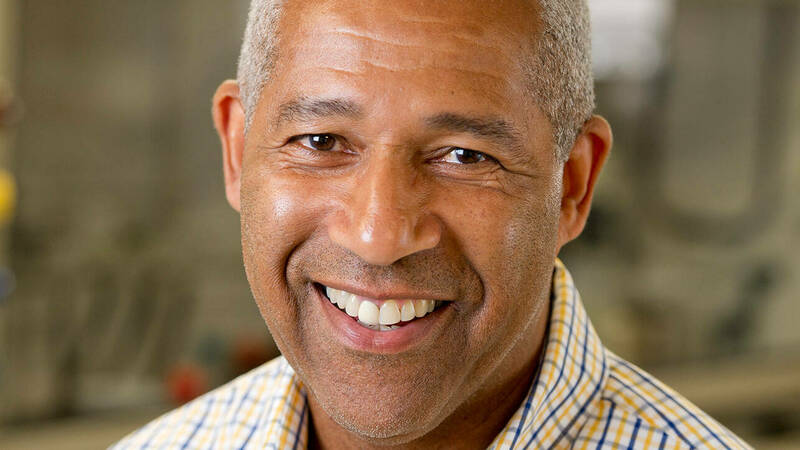
Xavier Creary
Professor Emeritus
Prospective Graduate Students
Biography
- 2017
- Professor Emeritus, University of Notre Dame
- 1994-2017
- Charles L. Huisking Professor of Chemistry, University of Notre Dame
- 1986-1994
- Professor, University of Notre Dame
- 1980-1986
- Associate Professor, University of Notre Dame
- 1974-1980
- Assistant Professor, University of Notre Dame
- 1973-1974
- Postdoctoral Research Associate, University of California, Santa Cruz
- 1973
- Ph.D. in Chemistry, The Ohio State University
- 1968
- B.S. in Chemistry, Seton Hall University
Selected Awards
- 2016, 2011
- Joyce Award for Excellence in Undergraduate Teaching
- 2007
- College of Science Shilts-Leonard Teaching Award
- 2006, 2002, 1999
- Kaneb Teaching Award
- 1993
- Thomas P. Madden Teaching Award
- 1977-1979
- Alfred P. Sloan Fellowship
Research Interests
Professor Creary's research interests are a blend of synthetic and mechanistic organic chemistry. Studies in his laboratory are directed toward the study of novel reaction mechanisms and reactive intermediates. Reactions that proceed via carbocations, carbenes, free radicals, radical anions and radical cations are current areas of interest.
In the carbocation area, studies are directed toward so-called "electron deficient cations", [R2CE]+. Studies have shown that a variety of such carbocations that are substituted with electron-withdrawing groups E (such as carbonyl, phosphoryl, and sulfonyl) can be generated and, in certain instances, are more stable than expected on the basis of the electron-withdrawing properties of the group E.
Substitution mechanisms of halodiazirines are also of interest. It has been found via 15N labeling studies, that under appropriate conditions, either C-azidodiazirines, or N-azidodiazirines, can be formed as transient intermediates when halodiazirines react with azide ion. Substitution reactions can proceed via Sn2' or SRN1 mechanisms. The possible involvement of the isomeric and formally antiaromatic diazirinyl anions is under investigation.
Carbene chemistry, and the effect of neighboring silicon on carbenic centers, is also an area of current interest. We have generated a number of silicon containing carbenes, and these carbenes rearrange to give products that are indicative of a special interaction between silicon and the carbenic center. Silicon-activated hydrogen migration to carbenic centers is one of the facile processes that silyl carbenes undergo.
A novel β-thiolactam forming reaction has been discovered in our laboratory starting with readily available aryl esters. Subsequent ozonolysis allows preparation of a variety of b-lactam systems. The mechanism, scope, and obvious synthetic utility of this reaction are currently under investigation, as are carbocationic intermediates derived from such systems.
Selected Publications
- Creary, X. "The Nature of Azo-Substituted Carbocations. N-N π-Electron Stabilization vs. Nitrogen Nonbonding Electron Stabilization" 2022 Journal of Organic Chemistry, 87, pp. 2241-2254. DOI:10.1021/acs.joc.1c00140.
- Creary, X. "3-t-Butyl-1-methylcyclobutyl Cation. Experimental vs Computational Insights into Tertiary Bicyclobutonium Cations" 2020 Journal of Organic Chemistry, 85 (11), pp. 7086-7096. DOI:10.1021/acs.joc.0c00472.
- Creary, X. "The cyclopropylcarbinyl route to gamma-silyl carbocations" 2019 Beilstein Journal of Organic Chemistry, 15 pp. 1769-1780. DOI:10.3762/bjoc.15.170.
- Creary, X. "Cobalt- and Silver-Promoted Methylenecyclopropane Rearrangements" 2018 Journal of Organic Chemistry, 83 (1), pp. 136-144. DOI:10.1021/acs.joc.7b02477.
- Creary, X., Chormanski, K., Peirats, G., Renneburg, C. "Electronic Properties of Triazoles. Experimental and Computational Determination of Carbocation and Radical-Stabilizing Properties" 2017 Journal of Organic Chemistry, 82 (11), pp. 5720-5730. DOI:10.1021/acs.joc.7b00548.
- Creary, X. "3-Trimethylsilylcycloalkylidenes. gamma-Silyl vs gamma-Hydrogen Migration to Carbene Centers" 2015 Journal of Organic Chemistry, 80 (22), pp. 11378-11387. DOI:10.1021/acs.joc.5b01955.